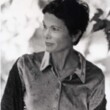The Lost Book of Adana Moreau: A Novel
(Libby/OverDrive eBook, Kindle)
Available Platforms
Description
More Details
Similar Titles From NoveList
Similar Authors From NoveList
Published Reviews
Booklist Review
In a lyrical tale spanning a century and veering from the colonized Caribbean to revolutionary Russia, from mid-twentieth-century Chicago to Katrina-besieged New Orleans, Zapata spins an iridescent web of grief, loss, and memory. Maxwell Moreau, offspring of Adana, a brilliant Dominican writer, and a father he knows as the last pirate, grows to adolescence deprived of both parents but entranced by the tales his mother once recounted in her glorious novel of alternate realities, Lost City. More than a half-century later, another orphaned boy, Saul, discovers a mysterious manuscript among his deceased grandfather's belongings, addressed to a famous theoretical physicist, Maxwell Moreau. The connection between Saul and Maxwell, and the role Adana's novel plays in both their lives constitute an enchanting blend of history, science, and fairy tale. Zapata's unforgettable characters lose loved ones, countries, and even identities, but they preserve lost worlds in the stories they tell and by reading the night sky. Maxwell and Saul realize that history and science alone are insufficient to describe the myriad possibilities of human existence. History, Saul observes, like fiction was illusory, if not an outright lie, but we still existed because of it and it existed because of us . A lush, spellbinding tale.--Lesley Williams Copyright 2020 Booklist
Publisher's Weekly Review
In Zapata's stirring debut, a man's efforts to fulfill his grandfather's last wishes leads him into the horror of post-Katrina New Orleans. On the eve of the Great Depression, Dominican expat novelist Adana Moreau finishes then destroys the sequel to her masterwork, Lost City. After her death, Adana's 10 year-old, mixed-race son, Maxwell, is alone and adrift in New Orleans. A generation later in Chicago, Saul Drower discovers an unpublished manuscript in a box that his late grandfather requested be sent to now-renowned physicist Maxwell Moreau. Saul's efforts to locate the elusive academic lead him to New Orleans just as Hurricane Katrina makes landfall. Joined by his childhood friend, Saul dives deep into the flooded city. Zapata expertly jumps between the story of Maxwell 's youth and Saul's attempt to return his manuscript. Histories collide as Saul navigates the storm-battered city in search of Maxwell and the prophetic words of Adana become realized. Zapata expertly blends the drama of the lost manuscript with the on-the-ground chaos and tumult caused by the storm. Digging into themes of regeneration and rejuvenation, Zapata's marriage of speculative and realist styles makes for a harrowing, immersive tale that will appeal to fans of Jesmyn Ward's Salvage the Bones. (Feb.)
Library Journal Review
DEBUT In this labyrinthine debut novel about story's power to traverse time and space, the sf-loving Saul Drower hopes to fulfill his grandfather's dying wish--return a massive manuscript to Maxwell Moreau. But when the envelope is returned unopened, he embarks on a rabbit-hole journey with his investigative reporter best friend that takes them to the stricken post-Katrina New Orleans. Along the way, Saul uncovers his own family's secrets. Zapata unfolds the mystery of the manuscript's origins, and readers will be mesmerized by the unraveling of how the protagonists' lives interconnect. The author develops each of the characters with nuance--from Dominican immigrant Adana Moreau, the book's author; to her husband, the Last Pirate in the world; and to their son Max, an astrophysicist bent on proving the existence of the multiverse. The story-within-a-story structure might lose some, especially as the sections alternate through the decade. However, patient readers will be rewarded with an illuminating work on trauma and the transience of human existence. Echoes of authors from the Latin American Boom movement and traces of H.G. Wells combine to create a fascinating send up to science fiction. VERDICT A heady literary and genre-bending novel for fans of Jorge Luis Borges, Carlos Fuentes, and Adolfo Bioy Caseres.--Shelley M. Diaz, BookOps, New York P.L. and Brooklyn P.L.
Kirkus Book Review
Two strangers are unknowingly connected by a rare manuscript.Maxwell Moreau, born to a pirate father and a Dominican immigrant mother in New Orleans in 1920, has a childhood in which he is surrounded by his parents' stories. His mother, Adana Moreau, learns to read in English with Maxwell at her side. She writes a well-received science fiction novel, Lost City, but becomes gravely ill before finishing the sequel, A Model Earth; she and Maxwell burn the manuscript before she dies . The pirate travels north in search of work, and Maxwell is effectively an orphan when his father fails to meet him as planned in Chicago. Nearly 80 years later, a man named Saul is grieving the death of his grandfather, his only family after his parents were killed in a terrorist attack in Israel. Shortly before dying, his grandfather had asked Saul to mail a package for him to someone named Maxwell Moreau at a university in Chile. When the package is returned some time later, Saul takes on the task of finding Maxwell, now a well-known physicist who theorizes about parallel universes, to give him the papers insidethe same manuscript Adana Moreau had burned so many years earlierand fulfill his grandfather's last request. This search takes Saul and his friend Javier to New Orleans just after Hurricane Katrina, and the two reflect on their friendship and Saul's grandfather's work as a historian as Javier documents the extensive loss of life in an effort to bear witness. Zapata's debut novel is a wonderful merging of adventure with thoughtful but urgent meditations on time, history, and surviving tragedy. The characters are richly drawn, and the prose is striking: "They drove east, back the way they had come, and the road seemed to take on an extra-temporal quality, like they were traveling backward in time. We're already meeting ourselves coming the other way, he thought as the Cadillac sped on and on and on." A luminous novel about the deep value of telling stories. Copyright Kirkus Reviews, used with permission.
Booklist Reviews
*Starred Review* In a lyrical tale spanning a century and veering from the colonized Caribbean to revolutionary Russia, from mid-twentieth-century Chicago to Katrina-besieged New Orleans, Zapata spins an iridescent web of grief, loss, and memory. Maxwell Moreau, offspring of Adana, a brilliant Dominican writer, and a father he knows as "the last pirate," grows to adolescence deprived of both parents but entranced by the tales his mother once recounted in her glorious novel of alternate realities, Lost City. More than a half-century later, another orphaned boy, Saul, discovers a mysterious manuscript among his deceased grandfather's belongings, addressed to a famous theoretical physicist, Maxwell Moreau. The connection between Saul and Maxwell, and the role Adana's novel plays in both their lives constitute an enchanting blend of history, science, and fairy tale. Zapata's unforgettable characters lose loved ones, countries, and even identities, but they preserve "lost worlds" in the stories they tell and by "reading the night sky." Maxwell and Saul realize that history and science alone are insufficient to describe the myriad possibilities of human existence. "History," Saul observes, "like fiction was illusory, if not an outright lie, but we still existed because of it and it existed because of us". A lush, spellbinding tale. Copyright 2020 Booklist Reviews.
Library Journal Reviews
DEBUT In this labyrinthine debut novel about story's power to traverse time and space, the sf-loving Saul Drower hopes to fulfill his grandfather's dying wish—return a massive manuscript to Maxwell Moreau. But when the envelope is returned unopened, he embarks on a rabbit-hole journey with his investigative reporter best friend that takes them to the stricken post-Katrina New Orleans. Along the way, Saul uncovers his own family's secrets. Zapata unfolds the mystery of the manuscript's origins, and readers will be mesmerized by the unraveling of how the protagonists' lives interconnect. The author develops each of the characters with nuance—from Dominican immigrant Adana Moreau, the book's author; to her husband, the Last Pirate in the world; and to their son Max, an astrophysicist bent on proving the existence of the multiverse. The story-within-a-story structure might lose some, especially as the sections alternate through the decade. However, patient readers will be rewarded with an illuminating work on trauma and the transience of human existence. Echoes of authors from the Latin American Boom movement and traces of H.G. Wells combine to create a fascinating send up to science fiction. VERDICT A heady literary and genre-bending novel for fans of Jorge Luis Borges, Carlos Fuentes, and Adolfo Bioy Caseres.—Shelley M. Diaz, BookOps, New York P.L. and Brooklyn P.L.
Copyright 2020 Library Journal.Publishers Weekly Reviews
In Zapata's stirring debut, a man's efforts to fulfill his grandfather's last wishes leads him into the horror of post-Katrina New Orleans. On the eve of the Great Depression, Dominican expat novelist Adana Moreau finishes then destroys the sequel to her masterwork, Lost City. After her death, Adana's 10 year-old, mixed-race son, Maxwell, is alone and adrift in New Orleans. A generation later in Chicago, Saul Drower discovers an unpublished manuscript in a box that his late grandfather requested be sent to now-renowned physicist Maxwell Moreau. Saul's efforts to locate the elusive academic lead him to New Orleans just as Hurricane Katrina makes landfall. Joined by his childhood friend, Saul dives deep into the flooded city. Zapata expertly jumps between the story of Maxwell 's youth and Saul's attempt to return his manuscript. Histories collide as Saul navigates the storm-battered city in search of Maxwell and the prophetic words of Adana become realized. Zapata expertly blends the drama of the lost manuscript with the on-the-ground chaos and tumult caused by the storm. Digging into themes of regeneration and rejuvenation, Zapata's marriage of speculative and realist styles makes for a harrowing, immersive tale that will appeal to fans of Jesmyn Ward's Salvage the Bones. (Feb.)
Copyright 2019 Publishers Weekly.Reviews from GoodReads
Citations
Zapata, M. (2020). The Lost Book of Adana Moreau: A Novel . Hanover Square Press.
Chicago / Turabian - Author Date Citation, 17th Edition (style guide)Zapata, Michael. 2020. The Lost Book of Adana Moreau: A Novel. Hanover Square Press.
Chicago / Turabian - Humanities (Notes and Bibliography) Citation, 17th Edition (style guide)Zapata, Michael. The Lost Book of Adana Moreau: A Novel Hanover Square Press, 2020.
Harvard Citation (style guide)Zapata, M. (2020). The lost book of adana moreau: a novel. Hanover Square Press.
MLA Citation, 9th Edition (style guide)Zapata, Michael. The Lost Book of Adana Moreau: A Novel Hanover Square Press, 2020.
Copy Details
| Collection | Owned | Available | Number of Holds |
|---|---|---|---|
| Libby | 3 | 2 | 0 |



































